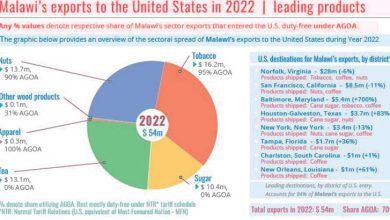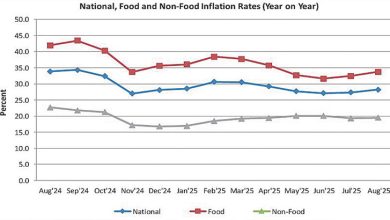Donors plan funding cuts to Malawi beyond 2027—UN
The United Nations says beyond 2027, most donors are already signalling reduction in their funding to Malawi, which will put a further strain on sustainability of social sector spending.
The move comes at a time most development partners have opted to provide direct assistance to specific programmes or through third-party managed-funding mechanisms.
In its analysis on Trends in Official Development Assistance and Implications on Social Sector Financing for Children, United Nations Children’s Fund argues that the reduction comes at a time Malawi is reeling from an already fragile economic position with limited fiscal safeguards to mitigate the impact due to weak revenue collection and escalating debt-servicing costs, among others.

Reads the analysis in part: “The reduction in ODA to Malawi threatens to exacerbate the country’s existing macroeconomic vulnerabilities and derail its long-term development trajectory.
“For many Malawians, the long-term impact of these funding cuts will be profoundly felt across key sectors such as health, education, food security and economic development, unless the gaps are adequately filled.”
The UN agency warns that without alternative financing, the sustained decline in donor funding will not only strain public budgets, but also exacerbate poverty and inequality, suppressing long-term economic growth.
Published data show that between 2017 and 2023, ODA has remained the largest, averaging $1.6 billion (about K2.8 trillion) compared to other external inflows such as foreign direct investment (FDI), averaging $144 million (about K252 billion) and remittances at an average of $219 million (K383 billion).
In relative terms, ODA flows to Malawi constituted 82 percent of total external inflows in 2023, compared to FDI at 10 percent and remittances at eight percent, according to the UN.
In an interview on Friday, Economics Association of Malawi president Bertha Bangara-Chikadza observed that the dwindling ODA has a number of implications on Malawi as grants by donor countries or international organisations to support development projects, have played a vital role in addressing the country’s socio-economic challenges such as health, education and infrastructure.
“This means a decrease in ODA grants impact the delivery of essential services and hinder poverty reduction efforts,” he said.
United Nations Conference on Trade and Development earlier warned that least developed countries are experiencing declines in aid flows, with data showing that their share of global ODA decreased to 22 percent in 2022, the lowest in over a decade.
At the same time, aid is also being increasingly provided through concessional loans rather than grants, increasing developing countries debt burdens at a time of growing debt distress, according to UN.
Ministry of Finance and Economic Affairs projected the financing of the national budget through tax revenues will increase to 53.6 percent in 2025/26 as grant financing will reduce to 14.2 percent.





